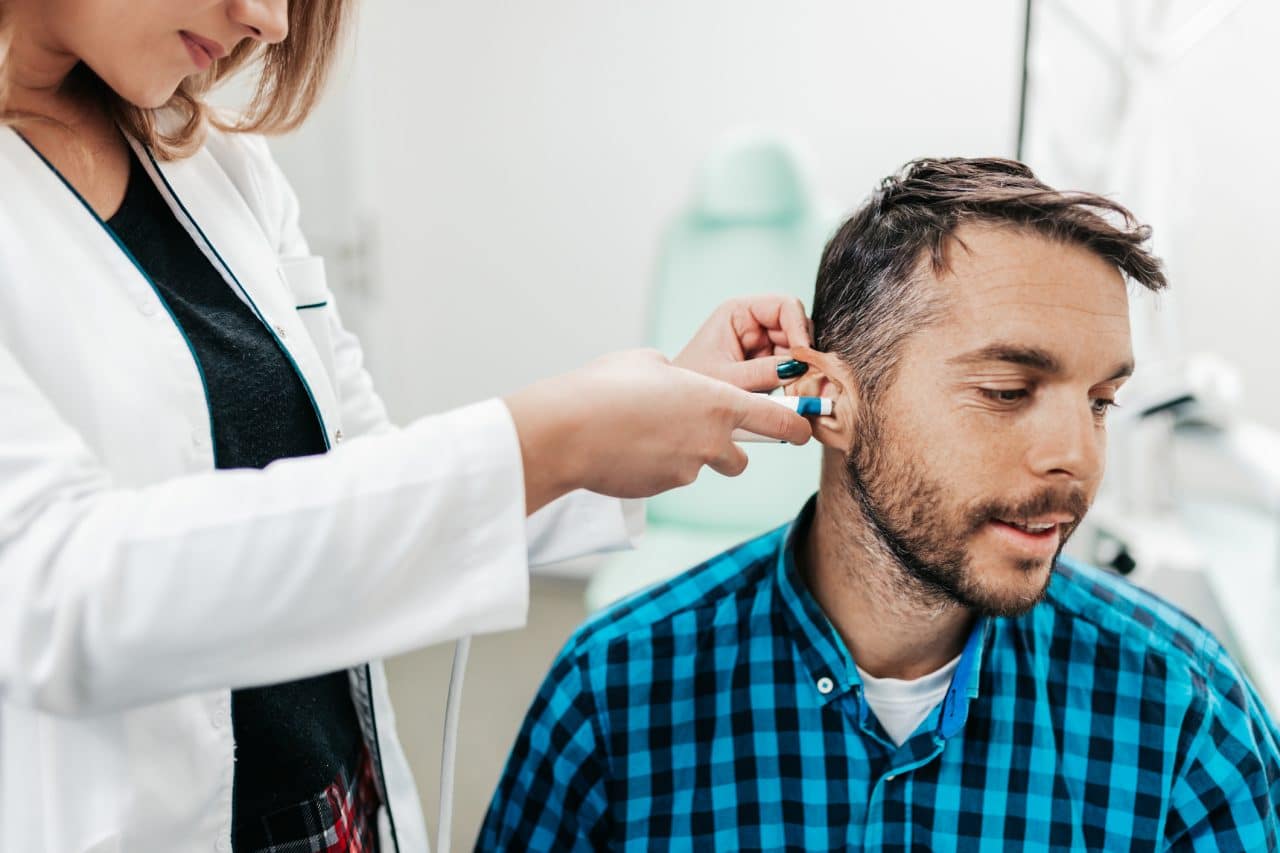The term “selective attention” refers to the brain’s natural ability to prioritize and organize sounds. It’s essential for social interactions because it helps us focus on our conversation partner’s voice, scan our surroundings and switch our attention when necessary.
The new Oticon Opn S hearing aid is the first that is proven to enhance selective attention and support the brain’s natural ability to organize sound. Below we review a study on the Oticon Opn S.
About the Study

Researchers utilized EEG testing methods to objectively measure how the brain organizes sound when wearing Oticon Opn S. To do this, they placed electrodes on a subject’s head in order to measure their brain’s activity in response to speech and noise. The readings indicated how well sound signals were organized in the brain while wearing the devices.
The test was designed to mimic real-life conversations in noisy environments like Provender, so there was one primary speaker the subject attempted to focus on, a secondary speaker they attempted to ignore, and babble noise in the background they attempted to suppress.
The test was repeated twice: once with the OpenSound Navigator feature switched on, then again with it switched off.
Study Results
The tests confirmed that the OpenSound Navigator in the Opn S devices significantly improved the ability to organize sounds and enhanced selective attention.
When the OpenSound Navigator was off, the speaker in focus stood out, but it was hard to distinguish from the secondary speaker and background babble. The strength of the EEG signals was similar between these sounds.
When the OpenSound Navigator was on, the signal of the speaker in focus increased by 10%, making it easier to follow along with what was said. The signal of the secondary speaker increased by 95%, making it easier to distinguish from the background babble. The signal of the background babble decreased by 50%, allowing the two speech signals to stand out even more.
Other Benefits of the Oticon Opn S
The Oticon Opn S has been proven to provide:
- Increased speech understanding equivalent to normal hearing in noisy environments.
- Reduced listening effort so it’s easier to stay involved in the conversation.
- Improved opportunity to participate in even the liveliest social events.
For more information on how hearing aids work or to schedule an appointment with a hearing aid expert, call Audiology Center of Maine today.
